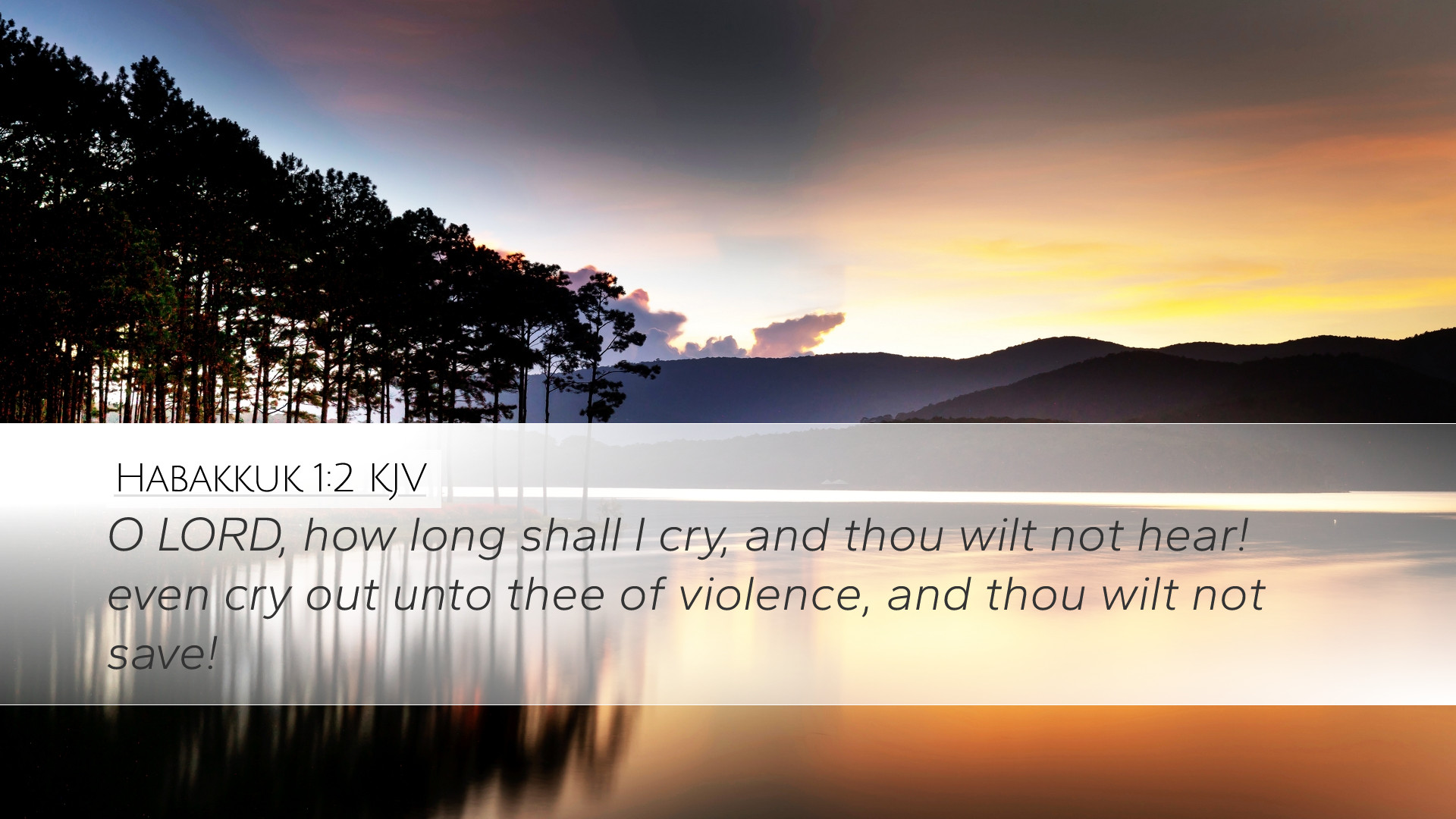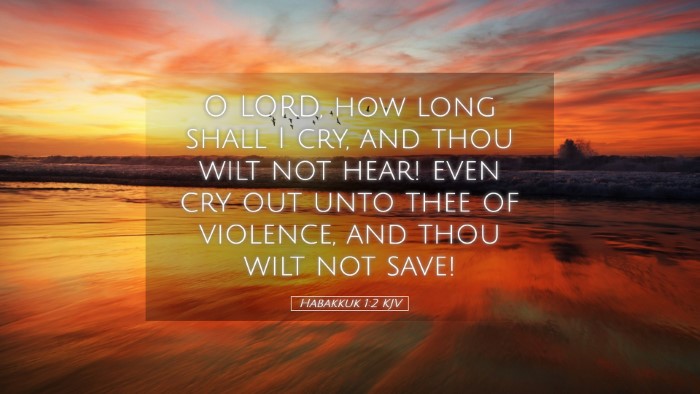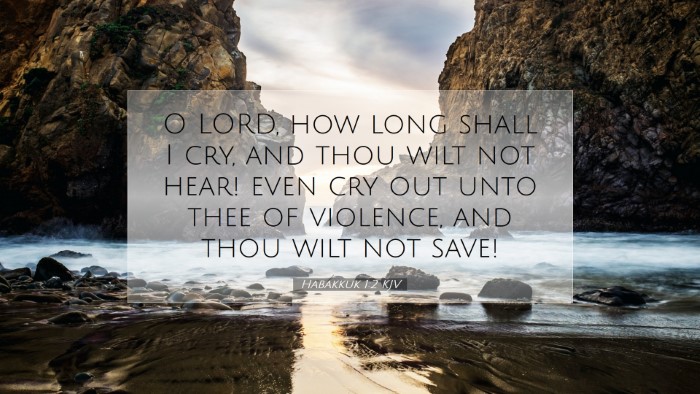Old Testament
Genesis Exodus Leviticus Numbers Deuteronomy Joshua Judges Ruth 1 Samuel 2 Samuel 1 Kings 2 Kings 1 Chronicles 2 Chronicles Ezra Nehemiah Esther Job Psalms Proverbs Ecclesiastes Song of Solomon Isaiah Jeremiah Lamentations Ezekiel Daniel Hosea Joel Amos Obadiah Jonah Micah Nahum Habakkuk Zephaniah Haggai Zechariah MalachiHabakkuk 1:2
Habakkuk 1:2 KJV
O LORD, how long shall I cry, and thou wilt not hear! even cry out unto thee of violence, and thou wilt not save!
Habakkuk 1:2 Bible Commentary
Commentary on Habakkuk 1:2
Verse: "O Lord, how long shall I cry, and You will not hear? Even cry out to You, 'Violence!' And You will not save."
Introduction
The book of Habakkuk is one of the Minor Prophets, rich in theological reflection and one that grapples directly with the issues of human suffering and divine justice. Habakkuk's lamentation in Chapter 1 is a profound reflection of his struggle to comprehend God’s silence amidst apparent injustice. This commentary synthesizes insights from various public domain commentaries, including those of Matthew Henry, Albert Barnes, and Adam Clarke.
Contextual Analysis
Habakkuk prophesied during a time of great turmoil in Judah, as it had fallen into moral decay and was facing impending Babylonian invasion. The prophet's query to the Lord expresses the deep pain of the faithful community witnessing injustices and seeking divine intervention.
The Cry of the Prophet
Matthew Henry notes that the “cry” of Habakkuk indicates a desperate appeal to God, and reflects the intensity of distress felt by the prophet. Here, the term “cry” embodies a sense of urgency. Habakkuk feels a nagging urgency and a profound sense of abandonment, which resonates with believers today who face suffering and injustice.
Questioning Divine Silence
Albert Barnes highlights the perception of God’s silence in times of trouble. The prophet feels as if God is indifferent to the violence and suffering around him. This tension between God’s silence and the cries of His people is a theme throughout the Scriptures, inviting a deeper conversation about faith amidst uncertainty.
The Nature of Violence
When Habakkuk cries out “Violence!” he points to the serious moral crises that plague the society. Adam Clarke elaborates that the term implies not merely physical violence but also societal corruption and injustice. This serves as a somber reminder that spiritual and ethical decay often precedes physical violence, and it calls for the faithful to remain vigilant in their moral standing.
The Call for Divine Intervention
Habakkuk's cry for help reflects a universal desire for divine intervention. He does not merely seek the absence of violence but longs for a restoration of order and justice. Matthew Henry argues that this cry is significant as it holds God accountable to His covenant promises, underlining the active role of the faithful in seeking righteousness.
Expectations of God’s Response
The phrase “And You will not save” communicates deep disillusionment with God’s response. Barnes comments on the implications of this line, noting that it encapsulates the trials of faith – where hope seems futile. However, the tension created by such despair is often the very soil from which faith springs anew; the prophet’s honest struggle invites God’s assurance.
Theological Reflection
Habakkuk’s lament can be seen as a microcosm of the human condition before God – it challenges believers to confront doubts while yearning for a deeper understanding of God's workings. Both Clarke and Henry remind us that God is not deaf to our cries, even when it feels like He is silent.
Practical Implications for Believers
This passage encourages believers to voice their laments to God without fear, reminding them that questions of faith do not indicate a lack of faith, but rather the authenticity of the relationship between humanity and the Divine.
- Expression of Honest Grief: Believers are invited to express their struggles openly, just as Habakkuk did.
- Expectant Waiting: The faithful are called to wait in expectancy for God's justice, even in times of silence.
- Active Advocacy: Readers are encouraged to advocate for justice in their communities, reflecting God’s character.
Conclusion
Habakkuk 1:2 serves as a poignant reminder of the complexity of faith in turbulent times. Through his cries, believers are encouraged to engage deeply with God, challenge their circumstances, and hold onto hope. Such active pursuit of divine engagement is vital for spiritual growth and communal health.


